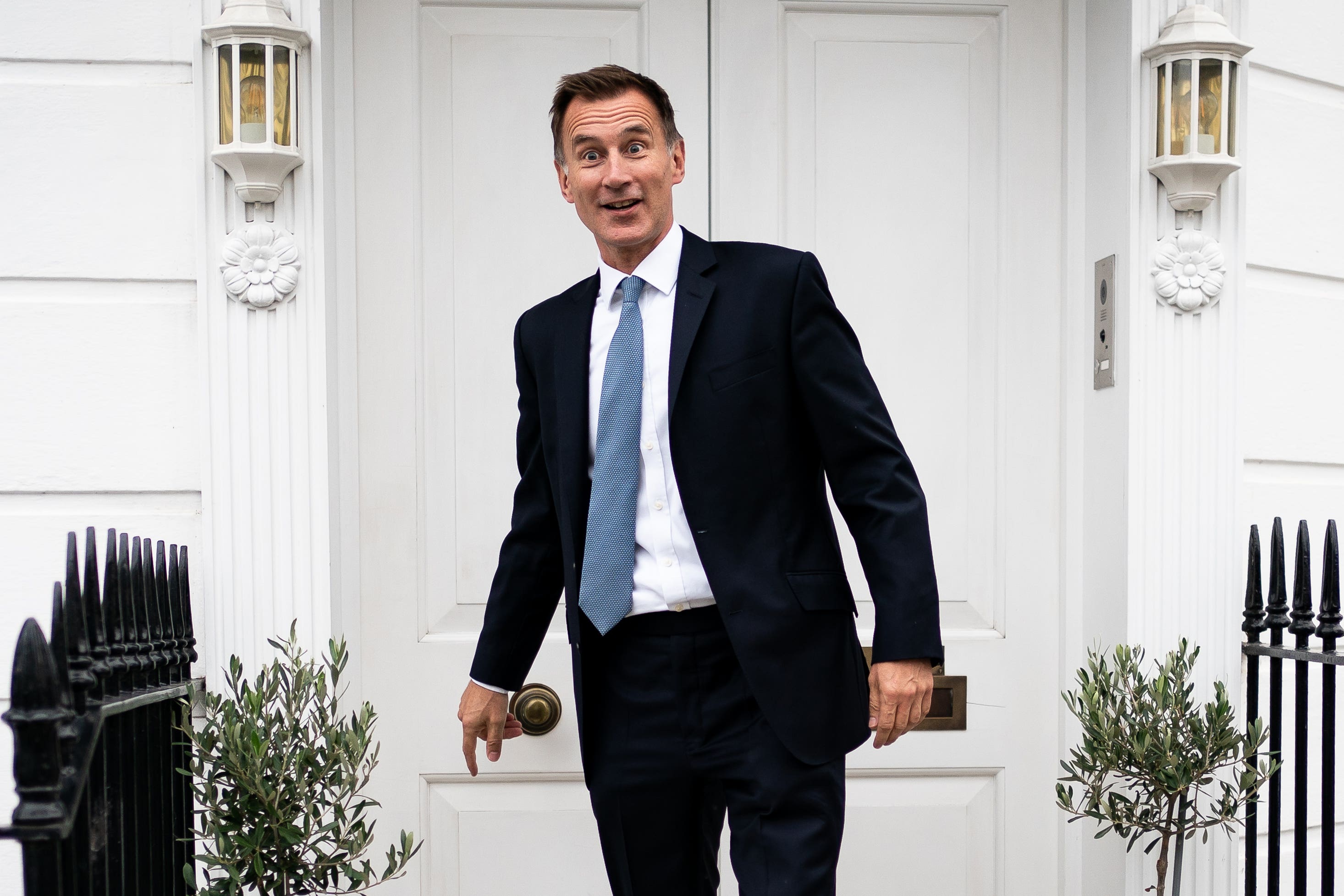Speculation builds over Hunt’s plans amid reports of delay to 1p income tax cut
Jeremy Hunt declined to be drawn into specifics of what may or may not be announced in the fiscal plan on October 31.

Your support helps us to tell the story
From reproductive rights to climate change to Big Tech, The Independent is on the ground when the story is developing. Whether it's investigating the financials of Elon Musk's pro-Trump PAC or producing our latest documentary, 'The A Word', which shines a light on the American women fighting for reproductive rights, we know how important it is to parse out the facts from the messaging.
At such a critical moment in US history, we need reporters on the ground. Your donation allows us to keep sending journalists to speak to both sides of the story.
The Independent is trusted by Americans across the entire political spectrum. And unlike many other quality news outlets, we choose not to lock Americans out of our reporting and analysis with paywalls. We believe quality journalism should be available to everyone, paid for by those who can afford it.
Your support makes all the difference.Speculation is growing about the direction that new Chancellor Jeremy Hunt will take the nation’s finances, amid reports that he could seek to delay plans for a 1p cut in income tax.
The new Chancellor, who spoke to broadcasters on Saturday in his first full day in office, declined to be drawn into specifics of what may or may not be announced in the fiscal plan on October 31.
Warning of “difficult decisions” to come, Mr Hunt signalled that the country could be facing some tax rises and spending cuts across government departments.
One plan, according to a report in the Sunday Times, would be to delay Kwasi Kwarteng’s promise to reduce the basic rate of income tax by a year as part of a wider package designed to calm the financial markets.
The move would be the latest Government U-turn if carried out, amid speculation that much of Ms Truss’s own economic vision could be junked as Mr Hunt tries to restore order.
A Treasury spokesperson said that it could not comment on tax changes outside of a fiscal event.
But amid the speculation were questions about a return to an era of austerity, with some observers wondering if a package of tax rises and public spending cuts could even get the backing of Tory MPs.
Crossbench peer Lord O’Neill earlier told BBC Radio 4’s PM programme that Mr Hunt’s “dilemma is the backbenches of this peculiar era of the Conservative Party is just full of so many different factions and many of them will be put out by Jeremy’s own history as evidenced by the fact he failed to become leader twice but also by what he implied now has to happen”.
Elsewhere, there was speculation that including the Ministry of Defence in any round of spending cuts could spark a clash with Defence Secretary Ben Wallace.
A defence source said Mr Wallace will hold Ms Truss to the pledges made.
Ms Truss promised to increase defence spending to 3% of GDP by 2030 in the wake of the war in Ukraine.
Earlier, Governor of the Bank of England Andrew Bailey said he spoke to Mr Hunt on Friday after his appointment.
Speaking in Washington, he said the pair had a “meeting of minds” on the issue of “fiscal sustainability” as he noted the fact the Office of Budget Responsibility is now “very much back in the picture”.
But his comments came with a warning that “inflationary pressures” could lead to another hike in interest rates by bank officials in the near future.